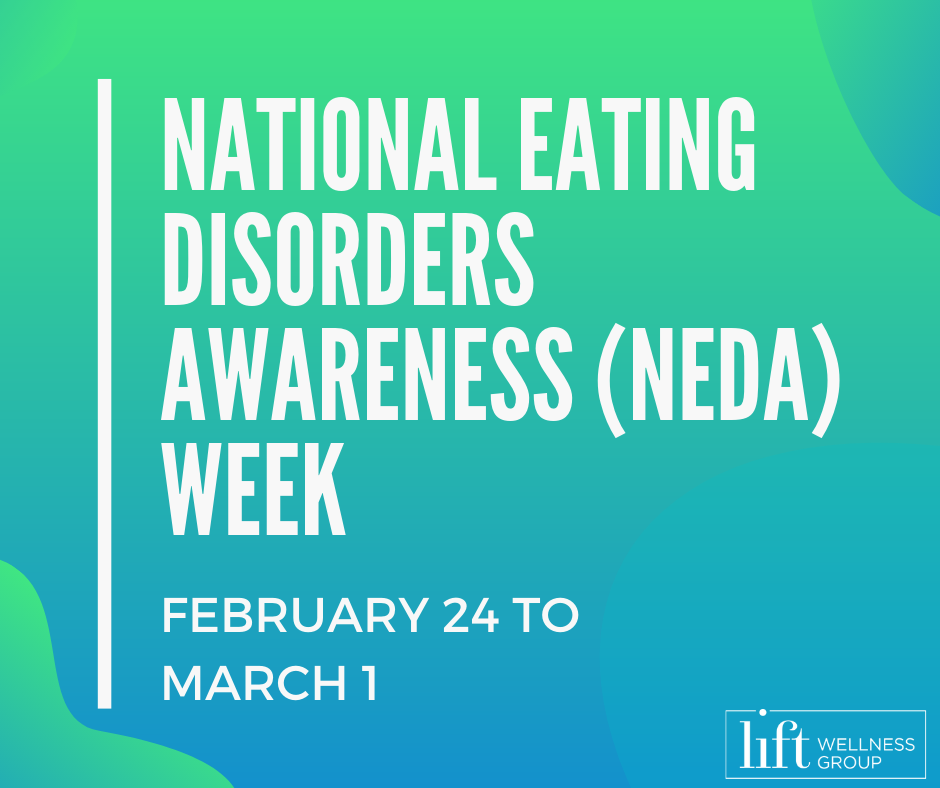National Eating Disorders Awareness (NEDA) Week: What It Is, and Why It Matters
The week of February 24 to March 1 marks National Eating Disorder Awareness (NEDA) week.
The 2020 theme for #NEDAwareness is “Come as You Are: Hindsight is 20/20.” This year’s theme is meant to convey that everyone’s story — no matter their identity or where they are on their journey to self-acceptance — is valid and worthy of representation. NEDA hopes that this theme will encourage people to reflect on any positive steps (regardless of how small) they have taken toward accepting themselves.
NEDA is a non-profit dedicated 365 days/year to working towards supporting those affected by eating disorders. We at LIFT, who work in the trenches with eating disorders daily throughout the year, know how imperative it is that there is a week dedicated to reminding everyone of the devastating effects eating disorders have on our society—and people we love.
This year, several powerful organizations have teamed up to shed light on the health crisis caused by eating disorders. For one, Aerie and NEDA have joined forces with Aerie’s graphic tee, which will donate 100 percent of profits to NEDA.
Further, by sharing any untouched photo of yourself on Instagram and using the tag #AerieREAL @aerie, the retailer will donate $1 to NEDA. (Over the last four years, Aerie has donated over $11,000 to NEDA, and we have the ability to nearly double that amount this year!)
Eating disorders have the highest mortality rate of any mental illness AND will affect 30 million Americans at some point in their lives – yet misinformation continues to keep people from getting access to the right kind of help. 65% of American women struggle with subclinical disordered eating, which can be as damaging to mental and physical health as diagnosed eating disorders. Subclinical disordered eating is any behavior that may not yet fit the medical definition of an eating disorder, but can be a precursor to one, and worse, fuels diet culture and impacts genetically vulnerable individuals who may be susceptible and prone to full-blown disorder. For example, dieters fall into the category of subclinical disordered eating, and dieters are 18x more likely than non-dieters to develop an eating disorder. During NEDAwareness Week, communities across the country join the National Eating Disorders Association (NEDA) to raise awareness through social media campaigns, legislative advocacy, building lightings, local events, and many more activities. LIFT encourages you to visit the NEDA website to learn more. The National Eating Disorders Association Helpline is (800) 931-2237.
Click here for more information on Eating Disorder Treatment.

